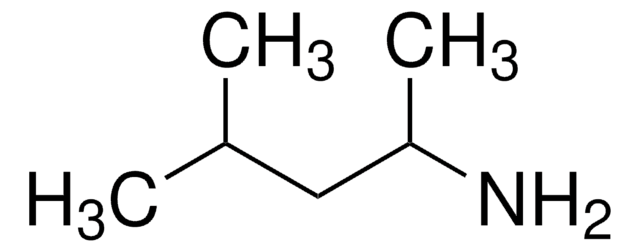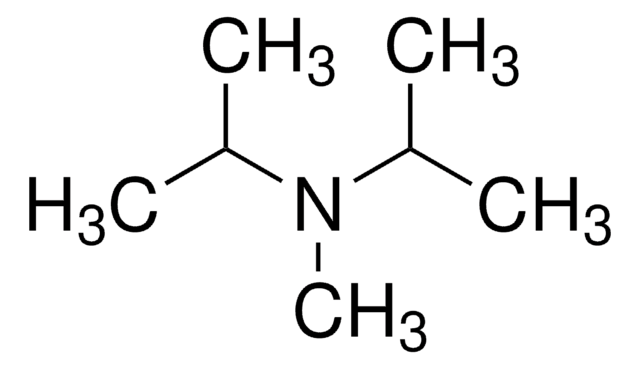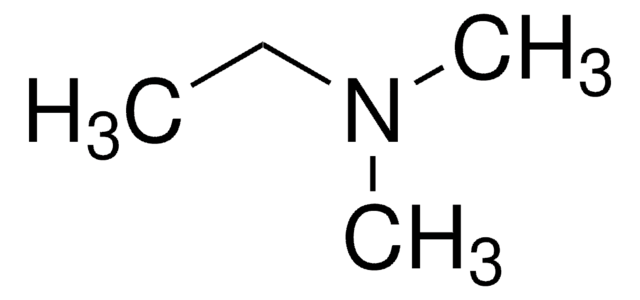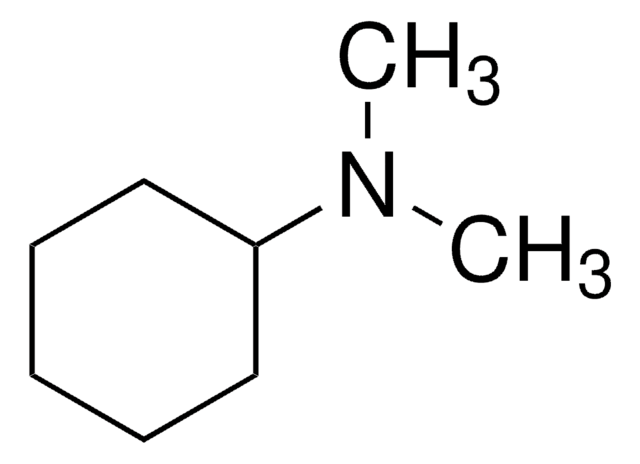308102
N,N-Dimethylhexylamine
98%
Synonym(s):
1-(Dimethylamino)hexane, N,N-Dimethyl-1-hexanamine, N,N-Dimethyl-n-hexylamine, N,N-Dimethylhexylamine, N-Hexyldimethylamine
About This Item
Recommended Products
Assay
98%
form
liquid
refractive index
n20/D 1.414 (lit.)
bp
146-150 °C (lit.)
density
0.744 g/mL at 25 °C (lit.)
functional group
amine
SMILES string
CCCCCCN(C)C
InChI
1S/C8H19N/c1-4-5-6-7-8-9(2)3/h4-8H2,1-3H3
InChI key
QMHNQZGXPNCMCO-UHFFFAOYSA-N
Looking for similar products? Visit Product Comparison Guide
Related Categories
General description
Application
Signal Word
Danger
Hazard Statements
Precautionary Statements
Hazard Classifications
Eye Dam. 1 - Flam. Liq. 3 - Skin Corr. 1B
Storage Class Code
3 - Flammable liquids
WGK
WGK 3
Flash Point(F)
93.2 °F - closed cup
Flash Point(C)
34 °C - closed cup
Personal Protective Equipment
Regulatory Listings
Regulatory Listings are mainly provided for chemical products. Only limited information can be provided here for non-chemical products. No entry means none of the components are listed. It is the user’s obligation to ensure the safe and legal use of the product.
FSL
Group 4: Flammable liquids
Type 2 petroleums
Hazardous rank III
Water insoluble liquid
JAN Code
308102-BULK:
308102-5G:
308102-25G:
308102-VAR:
Choose from one of the most recent versions:
Certificates of Analysis (COA)
Don't see the Right Version?
If you require a particular version, you can look up a specific certificate by the Lot or Batch number.
Already Own This Product?
Find documentation for the products that you have recently purchased in the Document Library.
Customers Also Viewed
Our team of scientists has experience in all areas of research including Life Science, Material Science, Chemical Synthesis, Chromatography, Analytical and many others.
Contact Technical Service










